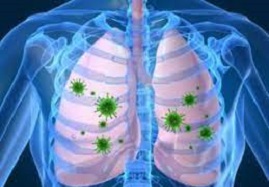

Many types of lung diseases can cause chronic respiratory conditions. Chronic respiratory disease affects millions of people in the United States alone. It can be difficult to say how many people have lung diseases overall because these diseases are grouped into specific conditions.
Many genetic and environmental factors can lead to lung disease, but smoking is the top preventable cause of many respiratory conditions.
This article will look at the eight most common respiratory diseases, their symptoms, and what causes them.
Asthma affects 25 million people in the United States. People with a family history of asthma, respiratory allergies, or severe childhood respiratory illness are at a higher risk of developing asthma.
Asthma is a chronic inflammatory disease that causes breathing problems when the airways become narrowed by inflammation or blocked by mucus. The condition’s severity varies from person to person, but most people take daily preventive medication to control their symptoms and prevent flare-ups.
Chronic obstructive pulmonary disease (COPD) is an umbrella term used to describe two primary types of obstructive lung disease that used to be classified separately: emphysema and chronic bronchitis.
Nearly 15 million people have been diagnosed with COPD in the United States, and another 12 million are believed to have the disease but do not have an official diagnosis.
COPD is the fourth leading cause of death in the United States. About eight in 10 cases are linked to exposure to cigarette smoke.
Cystic fibrosis (CF) is a genetic condition that affects about 35,000 people in the United States. It can cause both breathing and digestive problems because the disease makes the mucus in the body very thick.
While the disease can involve several organs, it tends to cause specific problems in the lungs, such as blockages from thick mucus that trap harmful bacteria and lead to infections.
Lung cancer is one of the most common types of cancer. It can develop as either small cell lung cancer or non-small cell lung cancer, which is the more common of the two.
Cigarette smoking—both direct and secondhand—is one of the biggest risk factors for lung cancer.
Tuberculosis is a bacterial lung disease caused by Mycobacterium tuberculosis. More than 1.8 billion people around the world have tuberculosis, but the disease is only considered active in 10 million of them.
It can also spread and cause damage to other parts of the body.
Bronchitis is a condition that develops when the windpipe (bronchial tube) gets irritated or inflamed. In response to the inflammation, the lining of the bronchial tube may make too much mucus as it tries to coat the area. The mucus can make it difficult to breath.
Inflammation can also cause swelling of the airway. This will cause it to narrow and makes it harder to breathe.
Pneumonia is a generic diagnosis. Even though there are different types of pneumonia, the way that the condition affects the lungs is similar in each one.
With pneumonia, a virus, bacteria, or another infectious agent causes the tiny air sacs in the lungs (alveoli) to fill with fluid or pus. These air sacs are what help exchange oxygen and other gases between the air that is breathed in and the blood. When these sacs are filled with fluid, the body’s ability to exchange gases is reduced.
Emphysema is a type of COPD that occurs when the tiny air sacs (alveoli) in the lungs lose their elasticity. These sacs are made to inflate and shrink and stretch with each breath, which allows air to move in and out of them.
If you have emphysema, these sacs have been damaged and cannot stretch when you breathe. As these air sacs become damaged and die off, your lungs have fewer working parts to move oxygen from the air you breathe into your blood.